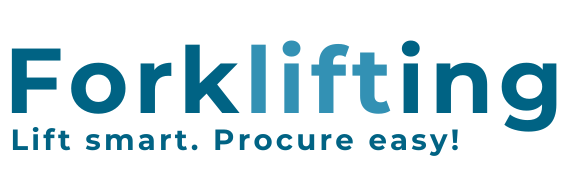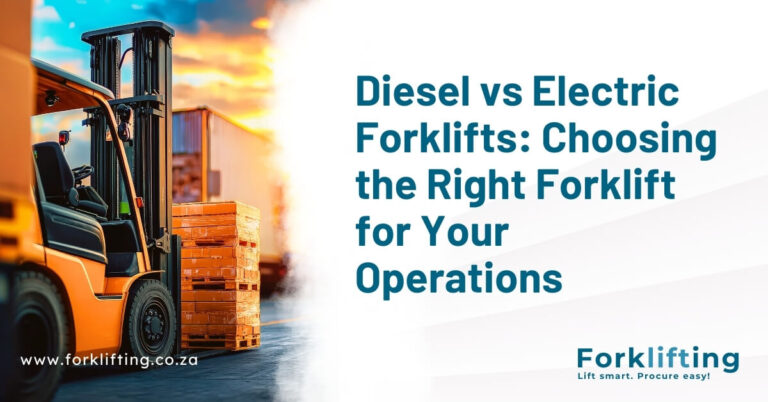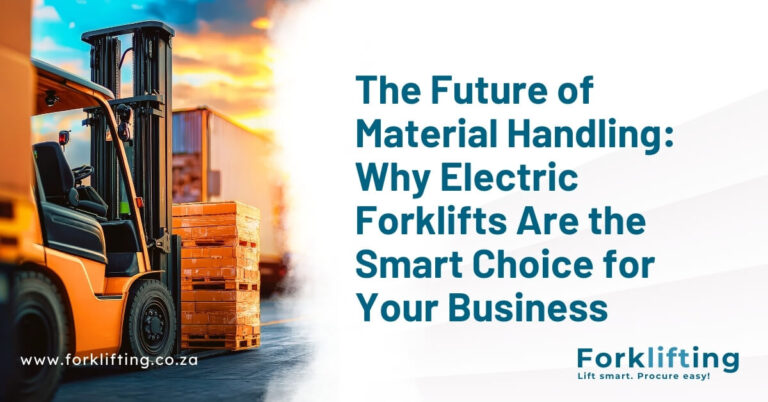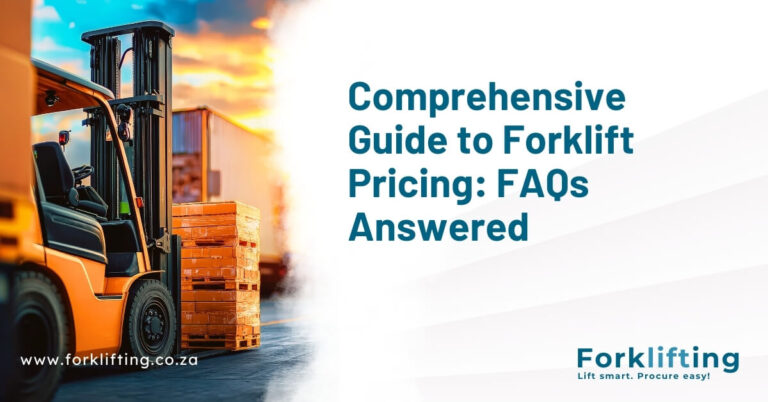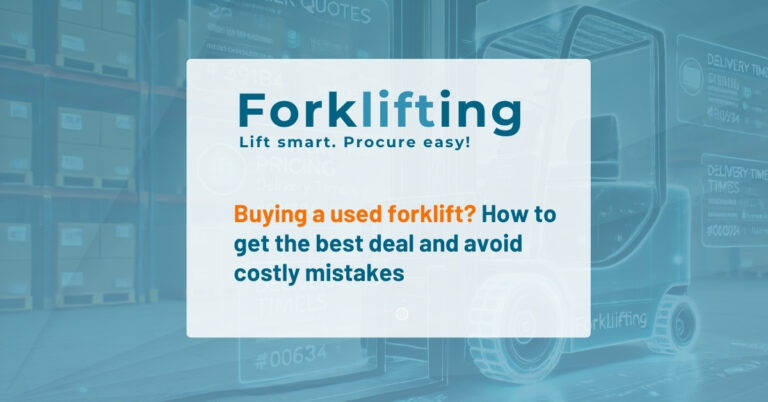When you’re in the market for a forklift — whether for rental or purchase — getting accurate forklift quotes from different suppliers is essential for making an informed decision. Whether you’re involved in procurement, operations management, or are a business owner looking to streamline your material handling procurement processes, understanding forklift prices and what’s included in those quotes can save you time and money.
In this guide, we’ll walk you through the steps to secure accurate forklift quotations from suppliers, covering everything from comparing prices to understanding hidden costs.
1. Know Your Forklift Requirements Before Requesting Quotes
Before you start requesting forklift quotes, it’s vital to have a clear understanding of your specific needs. Suppliers will often ask for detailed information to provide an accurate quote, and having this information on hand will help you avoid receiving quotes that don’t match your business requirements.
Key Factors to Consider:
- Forklift Type: Do you need a counterbalance forklift, reach forklift, or narrow aisle forklift? Each type serves different purposes, and understanding which is right for your business is crucial.
- Forklift Capacity: Determine the weight your forklift will need to lift. Forklifts are rated by load capacity, so knowing this ensures you’re looking at the right options.
- Fuel Type: Forklifts run on different types of fuel, including electric, diesel, and gasoline. Choosing the right fuel type can impact operating costs.
- Indoor vs. Outdoor Use: Will your forklift operate indoors or outdoors? This affects the type of tires, size, and overall build of the machine.
🔗 Diesel vs Electric Forklifts: Choosing the right forklift for your operations.
2. Ask the Right Questions When Requesting Forklift Quotes
To get an accurate forklift quote, it’s important to ask the right questions from suppliers. Here are some key questions to ask that will help you compare pricing effectively:
Essential Questions for Accurate Forklift Quotes:
- What is the total cost of the forklift? Ensure that the price includes all essential features, such as lifting capacity, mast height, and any attachments.
- Are there additional costs? Ask if there are any hidden costs, like delivery fees, insurance, or training costs.
- What maintenance services are included? Some suppliers include maintenance as part of the rental or purchase price, while others charge extra for servicing.
- What are your warranty terms? Understanding the warranty coverage will help you budget for potential repairs or part replacements.
- Do you offer any bulk discounts or long-term rental rates? If you’re planning on renting or purchasing several forklifts, you might be eligible for discounts.
By asking these questions, you can ensure that the quotes you receive are comprehensive and accurate.
🔗 Should you buy or rent a forklift?
3. Compare Forklift Quotes from Multiple Suppliers
One of the best ways to ensure you’re getting the best deal is to compare forklift prices from multiple suppliers. Requesting quotes from at least three to five suppliers will give you a better idea of the market rate for forklifts and help you make a more informed decision.
How to Compare Forklift Quotes:
- Make Sure All Quotes Include the Same Specifications: This is important for an apples-to-apples comparison. Ensure that each quote includes the same forklift type, capacity, and fuel type. This is why when you request a quote via Forklifting.co.za you’ll send one request for quote to multiple suppliers who will be able to issue quotes on the same information provided.
- Account for Total Cost of Ownership: Don’t just look at the upfront cost. Consider factors like maintenance, fuel, and training, which can add to the total cost of ownership.
- Evaluate Delivery and Service Options: Some suppliers offer free delivery or training, while others may charge additional fees. Make sure these are factored into your comparison.
4. Look Beyond the Price: Additional Factors to Consider
While price is important, it shouldn’t be the only deciding factor when selecting a forklift supplier. Look for suppliers who offer additional value in terms of service, reliability, and support.
What to Consider Beyond Forklift Prices:
- Supplier Reputation: Research the supplier’s reputation by reading customer reviews and testimonials. A well-regarded supplier will be more likely to provide reliable service.
- Maintenance & Service Plans: A good forklift supplier should offer reliable maintenance services and post-sale support, which can save you on future repair costs.
- Rental vs. Purchase Terms: Understand the terms of any forklift hire or sales agreement, including the length of time you’ll need to keep the forklift, and what happens at the end of the term.
🔗 Hidden Costs of Forklift Hire Prices and How to Budget Smartly.
5. Understanding Forklift Hire and Sales Contracts
Whether you’re renting or purchasing a forklift, it’s crucial to understand the terms of the contract to avoid unexpected costs.
Key Contract Clauses to Look Out For:
- Lease Length: Forklift rental agreements often specify lease lengths. Ensure the term aligns with your business needs.
- Condition of the Forklift: If you’re buying a forklift, confirm its condition (new vs. used) and inquire about its service history.
- Termination Clause: In the case of rental, ensure the agreement includes terms for early termination or extensions if your needs change.
Conclusion: Securing Accurate Forklift Quotes for Better Business Decisions
By following these steps, you’ll be well-equipped to obtain accurate forklift quotes from suppliers that match your business needs. Whether you’re looking for forklift hire or purchasing options, being thorough in your research and asking the right questions will help you make a more informed, cost-effective decision.
Ready to get started? Request a free forklift quote today and see how we can help you find the right forklift solution for your business.
